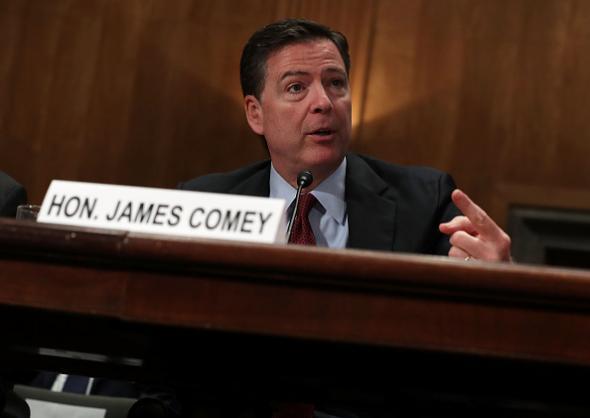
Alex Wong/Getty Images
There are a lot of people who believe James Comey overstepped his bounds by alerting the public to the FBI’s ongoing review of Hillary Clinton–related emails discovered on a computer used by her aide Huma Abedin. One of those people is Richard W. Painter, who wrote a tsk-tsking op-ed on the subject of Justice Department partisanship in the New York Times this weekend. Who is Richard W. Painter?
Richard W. Painter, a professor at the University of Minnesota Law School, was the chief White House ethics lawyer from 2005 to 2007.
George W. Bush’s chief ethics lawyer! Were Penn State’s public-relations team and the Hindenburg’s Not Exploding in Flames Advisory Board not available?
In a more specific irony, Painter was on Bush administration ethics duty during one of the most egregious cases of partisan Justice Department hackery in modern history: The firing of several U.S. attorneys who were removed because they wouldn’t waste their time prosecuting bogus partisan cases of voter fraud. The case was so embarrassing to the White House that even congressional Republicans called for Attorney General Alberto Gonzales to resign. And as it happens, a certain former Justice Department official named James Comey gave congressional testimony in the case that undermined the White House’s unconvincing claims that the terminated attorneys were actually fired for performance reasons.
Painter has also written previously in the Times that one of his jobs in the White House was advising George W. Bush on Supreme Court appointments. In October 2005, Bush nominated Harriet Miers—who was, at the time, Painter’s higher-up in the White House counsel’s office—to the Supreme Court despite her near-total lack of qualifications for the job. Like the U.S. attorney firings, it was an act of jurisprudence-related cronyism so unsupportable that even Republicans condemned it.
Incidentally, more than one conservative who was in D.C. legal circles at the time has asserted that Painter is exaggerating the level of influence he held in the White House. So what we have here is someone whose claim to authority on the subject of nonpartisanship is his personal connection to historically partisan decisions he may not have even been involved in making. In other words, Richard Painter should probably be sitting this one out.